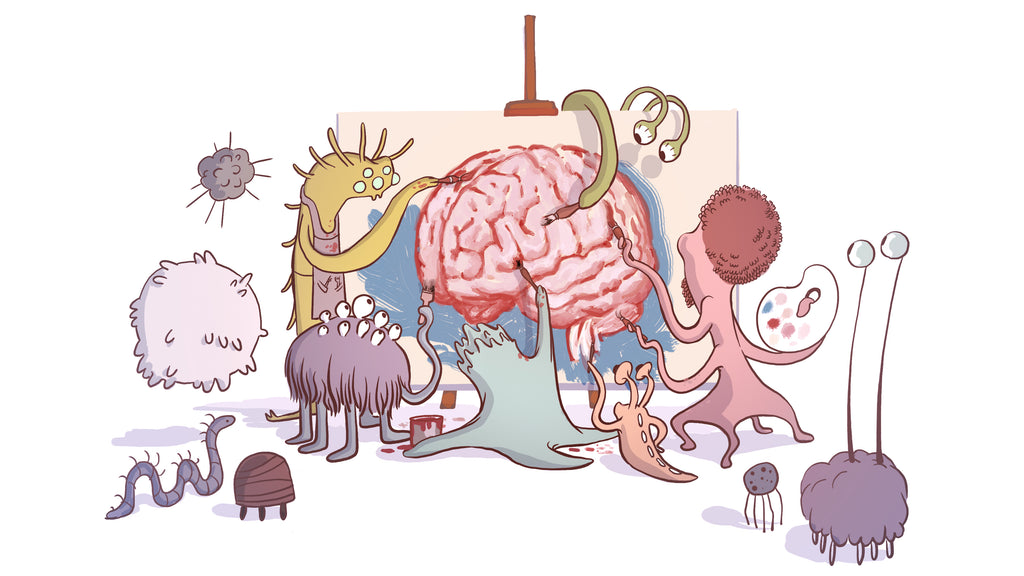Did you know your gut microbiome could be responsible for your mental or emotional disorders?
What is the gut microbiome?
Are you feeling depressed, anxious or agitated? Maybe it is time to direct attention toward your gut. Trillions of bacterial cells live in your colon, forming a unique environment known as the gut microbiome. Your gut microbiome plays an important function in both the maintenance of your health and the pathogenesis of a disease. However, your gut microbiome also has a huge impact on your moods, thoughts and brain.
How does the gut microbiome influence your emotions?

Some researchers claim that we have a second brain in our gut. This is because our gut is lined with more than 100 million nerve cells. It is far more than the number of nerve cells in our spinal cord or peripheral nervous system.
Since there is a bidirectional conversation between our brain and gut, they can cause a significant impact on each other. For example, when your body is exposed to stress, it undergoes a series of changes that diverts all energy and resources to the muscles and brain. The body also releases cortisol in response to stress. All these factors, when combined, can also have a significant impact on your gut microbiome. Similarly, a misbalance in your gut microbiome can impact your brain and affect your mood.
What do the studies say?
Several studies establish a bidirectional link between our brain and the gut microbiome.
- A study analyzed the stools of mice with schizophrenia-like behaviors and healthy mice. It was found that both groups have completely different bacterial makeup. Some clinical studies also show that fecal transplants from depressed patients to germ-free rats can induce depressive-like behaviors in the rats.
- According to a study conducted in 2019, the gut microbiome can modulate brain function and behaviors through the microbiota-gut-brain axis. The study found that unmedicated and medicated patients with schizophrenia had a decreased microbiome diversity and marked disturbances of gut microbial composition as compared to the healthy subjects.
- According to a review published in 2012, several studies in germ-free animals and animals exposed to pathogenic bacterial infections, probiotic bacteria or antibiotic drugs suggest a role for the gut microbiota in regulating anxiety, mood, cognition and pain.
- In a study conducted in 2015, fecal samples from 46 patients with depression and 30 healthy people were analyzed. Changes in the fecal microbiota composition in the patients were observed. The results showed either a predominance of some potentially harmful bacterial groups or a reduction in beneficial bacterial genera.
All these studies show that your microbiome can actually change your brain so much that it can create or remove mental disorders.
How to maintain the balance?

Our mental health begins in our gut. Therefore, to regulate our mental health, it is crucial that we maintain our gut microbiome balance. Since the bacteria in our gut microbiome work on day and night patterns, poor eating habits and sleep pattern can disrupt their circadian rhythm. This can have a negative impact on your mental health and make you more susceptible to disorders like depression and anxiety.
Here are some of the things that you can do to maintain your gut microbiome and boost your mood and mental well-being:
Bonus recommendation:
To learn more about your gut microbiome and how to enrich it, book a consultation with me here.

